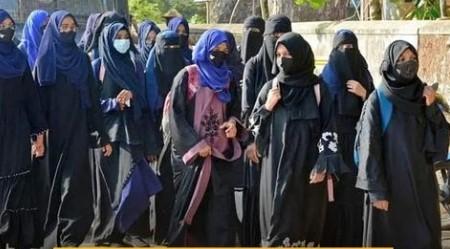The Shaheed Benazir Bhutto Women University (SBBWU) in Peshawar, Pakistan, has recently implemented a new dress code for its female students, banning the use of jeans and tights on campus. The university’s registrar office issued a formal notification outlining the new dress code, which mandates knee-length kurtas, shalwars, and white dupattas for female students.
According to the notification issued from Benazir Bhutto University, wearing the student card on the university premises is also now mandatory, and violators of the dress code will face a fine of Rs1,000. The decision to introduce a new dress code comes after complaints of rising incidents of sexual harassment in universities across Khyber Pakhtunkhwa (K-P), prompting former governor Shah Farman to direct all public universities to revise their open dress code policies.
It appears that the current K-P Governor, Haji Ghulam Ali, has followed in the footsteps of his predecessor, as he also hails from the highly conservative Jamiat Ulema-e-Islam-Fazl (JUI-F) party. Other universities in the region, such as Hazara University Abbotabad, Bacha Khan University Charsadda, and University of Peshawar, have also introduced similar dress codes in the past, which have faced widespread criticism.
The Kohat University of Science and Technology (KUST) also implemented a dress code, specifically targeting female students by requiring them to wear abayas. The notification issued by KUST administration directed female students to wear white shalwar with any full-sleeved kameez, scarf, dupatta, chaddar, black abaya, and black shoes. In the winter, they were instructed to wear black sweaters, coats, or plain jackets with black abayas. Male students were required to wear either white shalwar kameez or grey dress pants with black shoes, and faculty members were instructed to wear a formal dress with a black gown in classes.
The introduction of these dress codes in universities has sparked debate and controversy. While proponents argue that it promotes modesty and conforms to cultural and religious values, critics view it as regressive and an infringement on individual freedom and expression. Many students and activists have taken to social media to voice their dissent, expressing concerns about gender discrimination, violation of personal autonomy, and perpetuation of patriarchal norms.
Critics argue that such dress codes perpetuate gender stereotypes and reinforce the idea that women’s clothing is responsible for their safety and protection from harassment, shifting the blame from the perpetrators to the victims. They argue that this approach is regressive and goes against the principles of gender equality and women’s empowerment. Instead of imposing dress codes, they argue, universities should focus on creating safe and inclusive environments, promoting awareness and education about gender-based violence, and strengthening mechanisms for reporting and addressing harassment.
Moreover, critics also argue that dress codes limit women’s choices and autonomy, restricting their freedom to express themselves and make personal decisions about their clothing. Clothing is an important aspect of self-identity and self-expression, and imposing a particular dress code can be seen as an infringement on individual freedom. Women should have the right to choose what they wear, whether it’s jeans, tights, or any other clothing, without facing penalties or fines.
Some activists also argue that dress codes in universities disproportionately target women and reinforce gender discrimination. While female students are often subjected to strict dress codes, male students are not subjected to similar scrutiny, which highlights the gender-biased nature of these dress codes. This reinforces the idea that women’s bodies and clothing need to be regulated and controlled, perpetuating harmful gender norms and reinforcing gender inequality.

Critics on Benazir Bhutto University also point out that dress codes can have a negative impact on female students’ mental health and well-being. Imposing restrictive dress codes can create feelings of body shame, low self-esteem, and a sense of being policed and controlled. It can also contribute to a hostile and unwelcoming environment for female students, where they feel judged and objectified based on their clothing choices.
In contrast, proponents of dress codes argue that Benazir Bhutto university promote modesty and conform to cultural and religious values of Pakistan. They argue that dress codes are necessary to maintain decorum and discipline in educational institutions and to prevent distractions in the learning environment.



